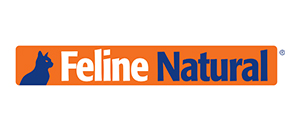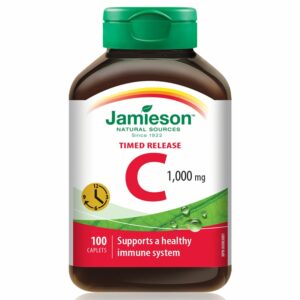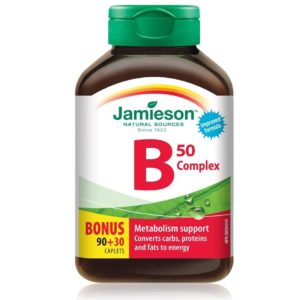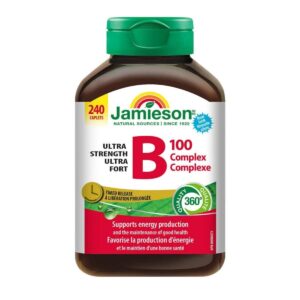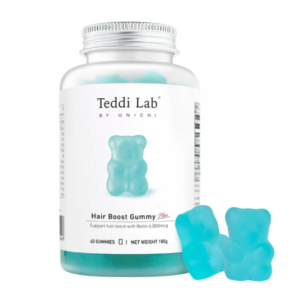
All About Vitamin E
Vitamin EFirst discovered by Evans and Bishop in 1922, Vitamin E is not just a single vitamin. In fact, it contains several fat-soluble compounds. Alpha-tocopherol is the most common compound found in the human body. Vitamin E is stored in the body's adipose tissue, so it does not need to be ingested daily.
Why do we need Vitamin E?
Vitamin E is an essential nutrient for our vision, brain, blood, skin, and immune system. It is also a powerful antioxidant that helps fight free radicals in cells. Free radicals are molecules produced after exposure to environmental factors such as smoking, pollution, ultraviolet radiation, and other forms of radiation. First discovered in the 1980s, this antioxidant vitamin is linked to cell breakdown. Vitamin E can protect the body from damage caused by free radicals. However, vitamin E is highly dependent on vitamin C, vitamin B3, selenium, and glutathione; that is, a diet rich in vitamin E will not be optimal if it is not taken with other nutrients.
Fortunately, vitamin E deficiency is very rare. People who are deficient in vitamin E often suffer from diseases associated with abnormal fat metabolism, such as chronic diseases or cystic fibrosis. Vitamin E deficiency can cause muscle and nerve damage, leading to loss of sensation in the limbs, loss of motor and control abilities, muscle weakness, vision problems, and a weakened immune system.
Benefits of Vitamin E
In addition to fighting free radicals and supporting the immune system, vitamin E has many other benefits.
Helps reduce the risk of age-related eye degeneration
A 2015 study by the Department of Epidemiology and Health Statistics at Qingdao University School of Medicine found that vitamin E intake and high serum tocopherol levels are associated with a reduced risk of age-related degeneration.
Helps with muscle repair
A 2015 study by the U.S. National Library of Medicine showed that vitamin E helps with muscle repair after exercise.
It may help reduce wrinkles and dark circles.
A 2004 study published in the Journal of Cosmetic Dermatology found that topical gels containing vitamin E and other vitamins can effectively reduce wrinkles and dark circles around the eyes.
Relieve menstrual cramps
In 2004, the British Journal of Obstetrics and Gynecology conducted a study on girls who took vitamin E supplements. The girls who took the supplements reported less menstrual discomfort and bleeding.
It may help slow down memory decline.
A study suggests that high doses of vitamin E may slow the progression of mild to moderate memory decline.
Make nails grow stronger
A 2016 commentary in the Indian Online Journal of Dermatology noted that vitamin E can enhance nail function and promote nail growth.

Sources of Vitamin E
Vitamin E is found in many foods, but it is most abundant in seeds, nuts, and vegetable oils. Here are some foods that are richest in Vitamin E.
- Wheat Germ Oil
- sunflower seed
- apricot kernel
- avocado (Persea americana)
- hazelnuts
- Abalone
- peanuts
Is Vitamin E harmful?
Compared to water-soluble vitamins (such as vitamin C), fat-soluble vitamins (such as vitamin E) have a higher potential for toxicity. While the likelihood of ingesting toxic substances solely from the diet is small, excessive amounts of vitamin E are harmful. Excessive vitamin E can cause nausea, diarrhea, stomach cramps, fatigue, weakness, headaches, blurred vision, bruising, and bleeding. Although taking vitamin E in moderation is safe, large oral doses of vitamin E can also cause problems.
Because it is a popular ingredient in many beauty products, it is generally safe for people to use topically on the skin.
Related Post:
Related Products:
-
Jamieson – Long Lasting Vitamin C 1000mg 100 Tablets
Original price was: $138.00.$118.00Current price is: $118.00. Add to basket -
Jamieson – Natural Vitamins B complex 50 120 capsules
Original price was: $168.00.$108.00Current price is: $108.00. Add to basket -
Unichi – Teddi Lab® Gummy Bears Gummy Bears for Hair Growth Upgraded Sea Salt and Green Titanium Flavour 60 Capsules
Original price was: $170.00.$125.00Current price is: $125.00. Add to basket








































